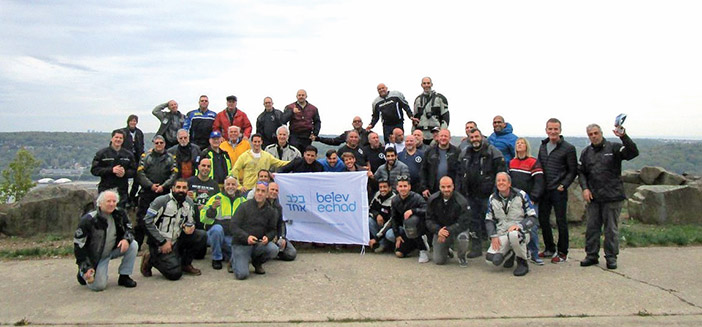


This week’s parsha of Bamidbar starts with a common mistranslation offered by Artscroll and others. In Chapter 1, verse 2, God commands Moshe, “Se’u et rosh kol adat Bnei Yisrael.” It is commonly translated as “Take a census of the entire Jewish people.” However, those who know Hebrew can tell you that the literal translation reads, “Lift up the heads of the entire Jewish assembly.” What are we to learn from the literal translation that is different from the typical translation regarding taking a census?
The Torah also tells us that people were counted in several ways. They were counted according to their families, according to their father’s household and by name. What was the significance of that?
The Ramban offers the following explanation of how and why the census was taken in this fashion. He wrote that, in this particular census, each member of the Jewish people being counted had the opportunity to come personally before Moshe and Aaron. They were able to tell them their names and describe their situations. They described which tribe they were affiliated with and which family they belonged to. Moshe and Aaron blessed each one of them and prayed for them. The half-shekel contribution toward the Temple served as an atonement for them. They walked away feeling not only counted, but that they themselves counted for something. They received individual attention. By doing the census in this manner, Moshe was able to fulfill the literal command that was given to him. People were able to walk away with their heads lifted higher, filled with pride and self-esteem.
This explanation, incidentally, brings back memories of how the Lubavitcher Rebbe used to stand patiently and greet thousands of people waiting on line, listening to each person and giving them a dollar bill and a bracha.
We are thus taught an important lesson by the parsha. Not only are we to see people in general and demographic terms. Instead, we are also to value them as individuals and ensure that each person feels that they count.
Two Sundays ago, the Chai Riders Motorcycle Club was able to participate in a project whereby wounded IDF soldiers are brought to the New York City area and are given the royal treatment. Each year, “Belev Echad” hosts groups of these wounded warriors as a small gesture of gratitude to these men and women to whom we owe so much. The 10-day tour provides respite for the body and psyche through visits to classic city sites, shows, sporting events and community activities that heal the spirit and soul, creating memories that last a lifetime. As part of this tour, the wounded IDF soldiers were taken as passengers on the backs of dozens of motorcycles while we traveled the scenic byways of the Lower Hudson Valley in an all-day event. Riding on motorcycles with an accompanying police escort is an exciting experience that we trust they will never forget.
The stories of how these soldiers were wounded are typically tragic. They may have sustained injuries from shrapnel while destroying terror tunnels or while encountering an IED. Many of these soldiers have undergone months of rehabilitation and may still suffer from PTSD. Under such circumstances it might be easy to feel discarded or underappreciated by others. Participating in this annual touring event, and especially riding on motorcycles, makes them feel valued and special. Like the Jews in Moshe’s time, they feel that they count for something. Their service to the Jewish nation feels more appreciated. They are better able to walk away with their heads lifted high, filled with pride, dignity and self-esteem.
These wounded IDF soldiers, who have sacrificed much, are now stronger and can “lift their heads up high,” using the words from this week’s parsha. So too, may Hashem bless us collectively so we feel we are not only counted, but that we count for something and that our sacrifices and hardships in life are also appreciated.
By Rabbi Dr. Avi Kuperberg
�Rabbi Dr. Avi Kuperberg is a forensic clinical psychologist. He is the president of the Chai Riders Motorcycle Club of NY/NJ. He also leads the Summit Avenue Shabbos Gemara shiur and minyan in Fair Lawn, New Jersey. He can be reached at [email protected].
�










